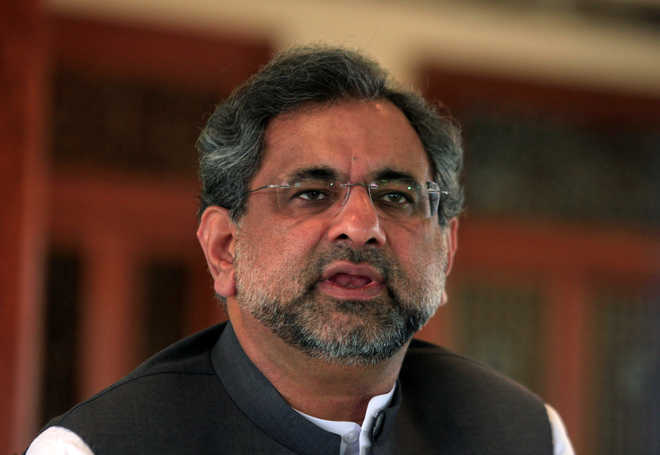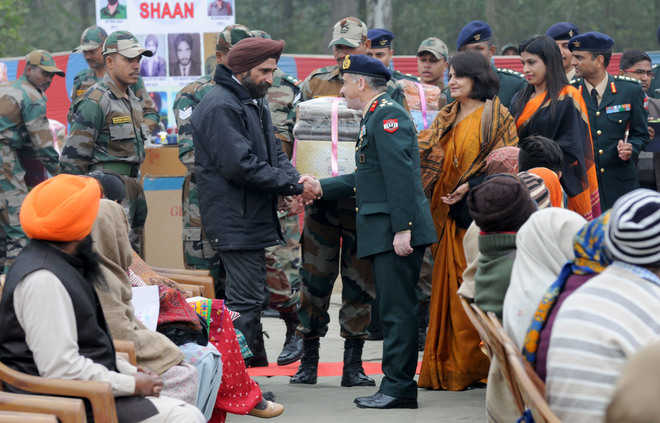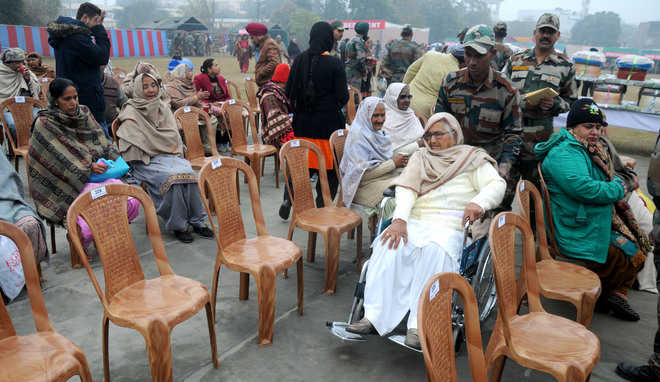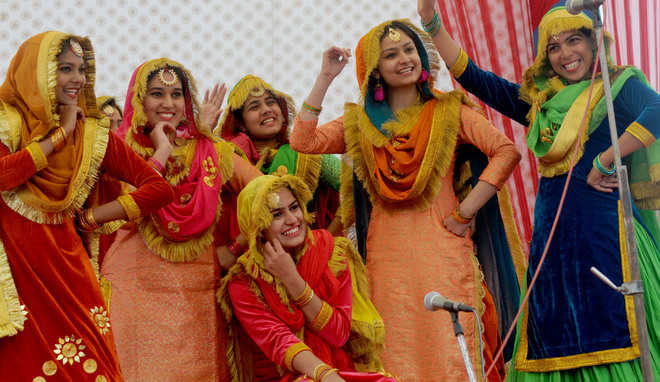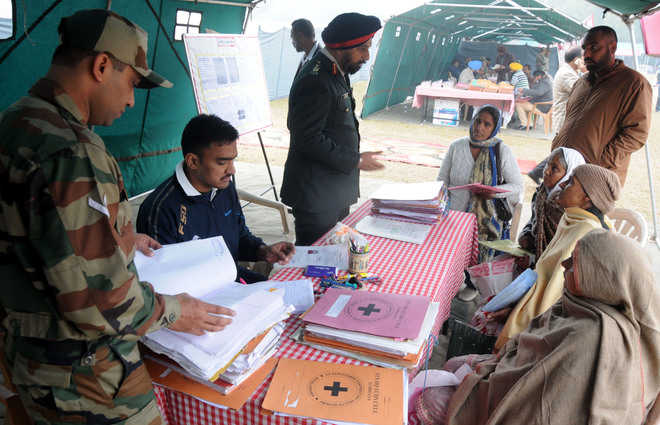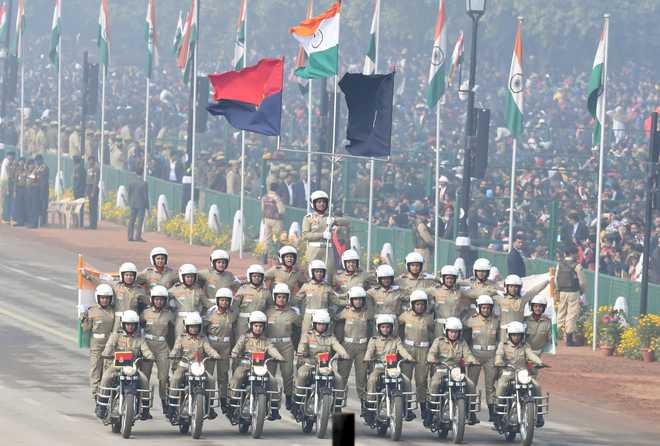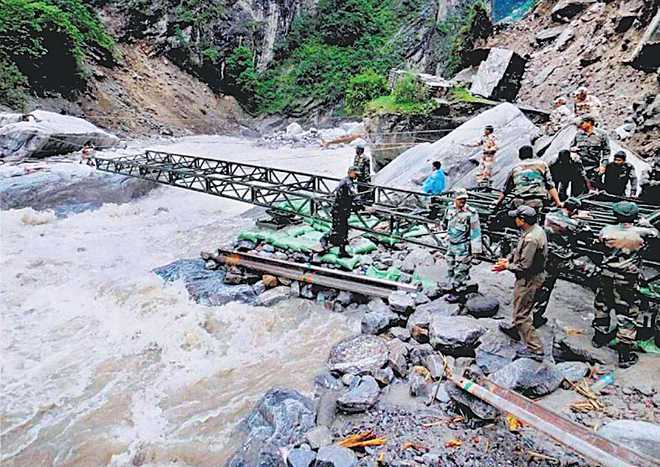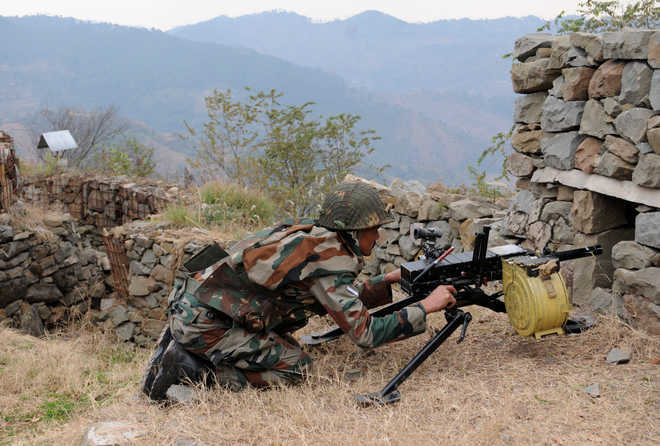As the four seniormost judges of the Supreme Court flagged their concern about the institution, it was reminiscent of the Emergency. Most people are these days moving in hushed silence, stunned and traumatised by the goings-on.
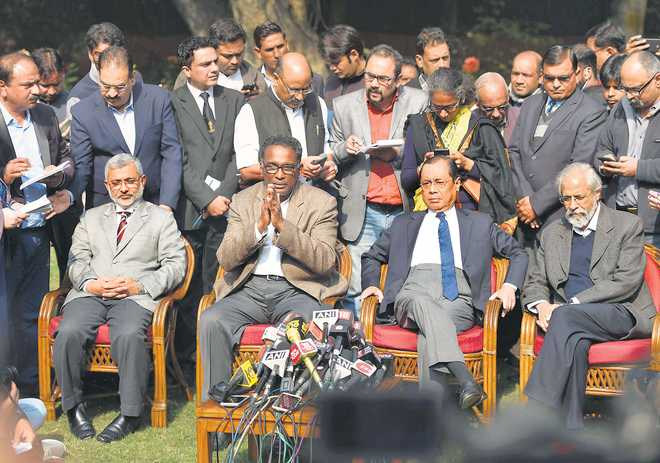 JUDGES’ PLEA TO THE NATION: ‘Please take care of the institution and take care of the nation.’ PTI
JUDGES’ PLEA TO THE NATION: ‘Please take care of the institution and take care of the nation.’ PTIMG Devasahayam
Former IAS officer and District Magistrate, ChandigarhAS I sat glued to the ‘idiot box’ watching the ‘historic’ event of four senior most judges of the Supreme Court ‘paying their debt to the nation’ and placing their case before ‘We, the People’, I was touched by two poignant references by Justice Jasti Chelameswar: “We are all…four of us are convinced that unless this institution is preserved and it maintains its equanimity, democracy will not survive in this country.” And: “We are left with no choice except to communicate it to the nation that ‘please take care of the institution and take care of the nation’… I don’t want another 20 years later some very wise men in this country blame that Chelameswar, Ranjan Gogoi, Madan Lokur and Kurian Joseph sold their souls and didn’t take care of this institution, they didn’t take care of the interest of this nation.”My thoughts went back to the special ward in the PGI, Chandigarh, and my conversations with Lok Nayak Jayaprakash Narayan (JP) who was incarcerated there during the Emergency. It was August 6, 1975. As was my wont, I had gone to see JP that morning. He asked me what the date was and I told him. He mumbled to himself that the Supreme Court hearing of the Prime Minister’s appeal against her disqualification by the Allahabad High Court was on the 11th. He asked me about the report of the case. He also asked me as to what was happening in Parliament. I could not mislead him by saying that there was nothing special. Hence, I told him about the amendments to the Representation of the People Act by Parliament the day before. He was upset as I narrated one by one the six amendments that had been made. The most prominent was the amendment granting immunity to the PM’s election from being challenged in a court of law. He looked sad and said with a deep sigh that there was no hope now. “Everything is finished. She will be there forever.” I also informed him of the convening of the state assemblies on August 8 and 9 and also the likely amendment of the Constitution rendering the elections of President, Vice-President, Prime Minister and Speaker of the Lok Sabha non-justiciable. He was more upset now. He said in a very sad tone: “Democracy is finished completely,” and after a pause, “at least for the present.” He said that his only hope was in the Supreme Court and that too had been shattered. “Now there is nothing to hope for and nothing to live for. This lady has demolished the very edifice of democracy so painfully constructed by her father and myriad others.” I was touched by his sentiments and the way he expressed it. I told him that this was inevitable and one could see it coming. But JP did not take it lying down. On August 10, he addressed a letter to the Prime Minister which was delivered to me around noon. In the letter, he had declared that from August 25, he would start a fast-unto-death unless the Emergency was revoked and all detainees released within two weeks. He would not take anything, except water, sour lemon and medicine meant only for ill health. Realising its disastrous consequences, I rushed to JP immediately and after a sharp wordy duel lasting over two hours, dissuaded him from taking this extreme step. But not before he said these extremely anguished words: “I do not want to live to see the death of democracy before my very eyes. The least I could do would be to deny me that unparalleled agony and die before democracy is dead.”Be that as it may, the accuracy of JP’s prediction about the Supreme Court is narrated by Nayantara Sahgal in her book ‘Indira Gandhi’s Emergence and Style’: “The essence of Emergency was the pinnacle-power — a position above the multitude, unaccountable and unchallengeable — it sought to guarantee the Prime Minister. This was accomplished by three amendments to the Constitution and an Act of Parliament. The 38th Amendment put the declaration of Emergency beyond the scrutiny of the courts. The 39th Amendment made election disputes relating to the Prime Minister, President, Vice President and the Speaker non-justiciable. This wiped out the Allahabad High Court judgment with retrospective effect and ensured a Supreme Court judgment in her favour. On 7 November 1975, a 5-judge bench of the Supreme Court upheld the amendments and Indira’s 1971 election to Parliament.”Supreme Court judges then had not ‘taken care of the interest of the nation’ and some of them perhaps had ‘sold their soul’. This judgment shattered JP’s will to live and under intense agony and mental pressure, his kidneys, which were already under stress, failed. He took seriously ill which could have been life-threatening. Realising the enormity of the situation, I initiated a ‘pincer movement’ to pressure the Union Home Ministry and PMO, got JP released on November 12 and sent him post haste to Bombay’s Jaslok Hospital just in time for his kidneys to be treated and life saved. JP lived for four more years, defeated the Emergency and returned India back to democracy.Since then, democracy has been limping and in recent years, again in dire danger. Basic violations of the democratic spirit and the crude attempts to legitimise a new type of regime and new criteria of allocation of rights and obligations continue unabated. There is no sense of boundary or restraint in the exercise of power, and there is a striking growth of arbitrariness and arrogance with which citizens are being turned into subjects, meekly accepting party/government diktats. Polarising agenda, communal hatred, violence, demonetisation and Aadhaar are the tools used.Reminiscent of the Emergency, most people are moving in hushed silence, stunned and traumatised by the goings-on. There is fear and anxiety all around. Across the nation, grovelling administrators, media anchors, academicians, advocates and accountants are vying with each other to sing paeans to the rulers. The bulk of the civil service is crawling when only asked to bend. Higher echelons of the judiciary bow to the rulers and are willing to decree the way they want. Politicians of all hue and colour, barring honourable exceptions, lay supine and inactive. In the event, India’s precious democracy is in peril again as openly stated by the four wise men of the highest court of the land. As an ordinary citizen, all I can do is to wail in the manner of our forefathers: “Democracy is in peril, defend it with all your might.” And also salute these four men who have stood high and tall when most others have fallen asunder!












